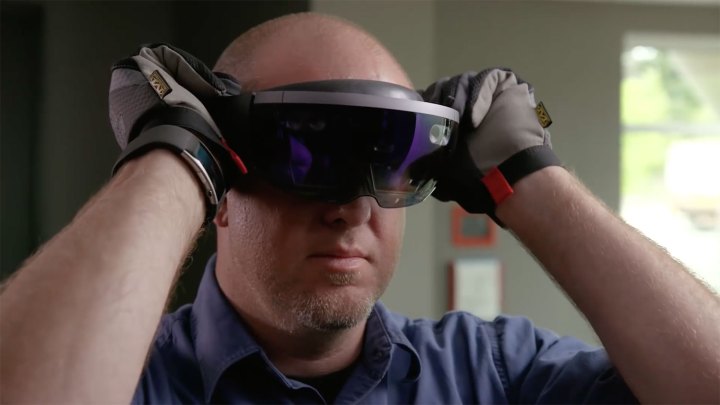
A second version of the device was apparently in development, but has now been canceled, according to a report from Thurrott. It’s likely that this release would have reduced the price and size of the HoloLens, making it more appealing to consumers than the developer-centric original.
However, there’s now word that Microsoft is confident that HoloLens can hold its own against competitors without an immediate revision. As such, the company is now preparing a more comprehensive update that will likely launch in 2019. That might seem like a way off, but this version of the HoloLens would be even further off were it not for Microsoft’s decision to scrap the intermediary second edition.
It’s clear that some of the biggest players in the tech industry think that AR is the future. However, these forecasts might not line up with users’ eagerness to adopt the new hardware. Microsoft’s strategy seems to hinge on delaying a more advanced HoloLens headset until users are ready to invest in AR.
At present, there isn’t a great deal of pressure for Microsoft to press forward. Its biggest rival in terms of AR is Magic Leap, and while the company has had no problem gathering funding, it’s yet to make a product available to the public.
Microsoft has no intention of scrapping its HoloLens project. However, it seems that the company has no problem with abandoning a particular iteration of the device if it stands to benefit the larger HoloLens brand. Right now, it’s all about making the necessary preparations for a time when your average user is ready to buy an AR headset.
Editors' Recommendations
- Microsoft’s executive shake-up casts a shadow on upcoming Surface event
- Turns out Microsoft’s HoloLens 3 might not be dead after all
- New report indicates that Apple’s two secret projects are its ‘next big thing’
- Microsoft unveils Mesh, and with James Cameron, dives into mixed reality
- Hands-on with Microsoft Mesh: I handed someone a whale shark, and it was awesome


